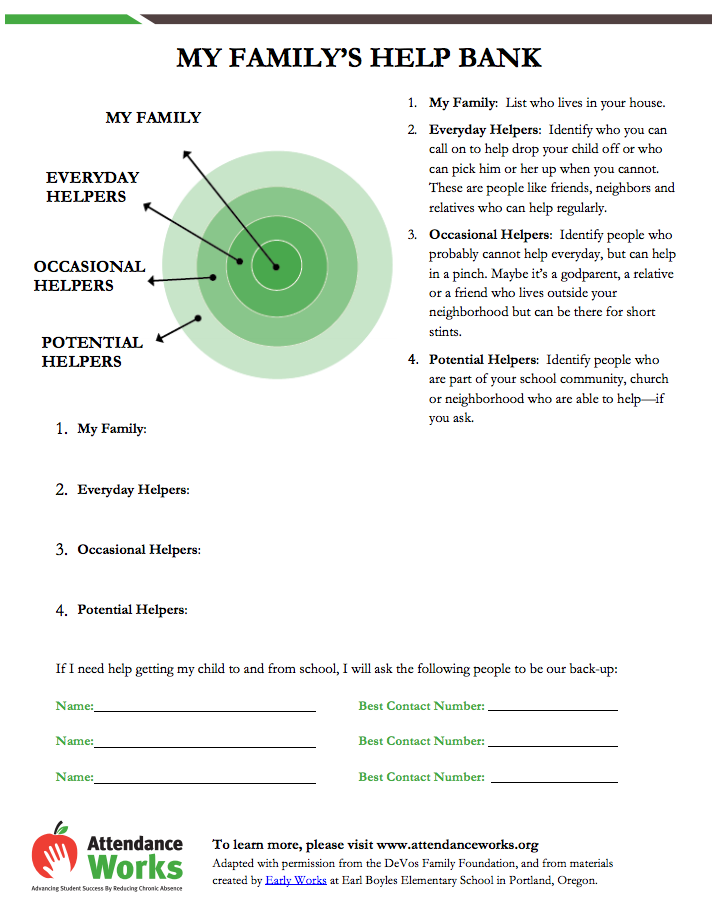Reach Out and Engage Mentee’s Family
Families need to be nurtured as key partners in this work. The key to success is approaching without judgment, and assuming that the caregivers and parents want what’s best for their children. Families need to know that a mentor shares their goal for their student’s success and is there to help.
Especially for our youngest students, connecting to families early in the process is extremely important for building a relationship. Ideally, this would occur soon after the school has already notified the family that their child has been chosen for the success mentor program in writing and/or through a phone call. Prior to making contact with the family, be sure to learn about the family especially with whom does the child live, how far do they travel to get to school, and if they come from a particular cultural or linguistic background. School staff or the mentee can often provide some of this information. If the mentor does not speak the home language of the family, arrange for another adult – perhaps a staff member, community partner or another parent – to help with translation. Avoid using children to translate for their parents since that can create challenging family dynamics.
Make personal introductions. Success mentors can use a variety of approaches to initially meet the parents:
Mentors should keep the initial phone call or meeting short, positive and friendly. Share who they are, offer a positive observation about the child and information about the success mentor program. Provide information about how the family can contact them if they have any questions or concerns.
One way to help improve attendance is to encourage families to think about their back up plans for getting to school even when challenges come up. Consider inviting families to use this tool: My Family's Help Bank
